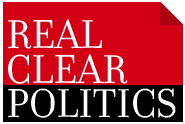ALG Editor’s Note: In the following featured column from Real Clear Politics, Robert Samuelson’s analysis of Barack Obama’s failed leadership in health care reform is spot-on.

A Parody of Leadership
WASHINGTON — Barack Obama’s quest for historic health care legislation has turned into a parody of leadership. We usually associate presidential leadership with the pursuit of goals that, though initially unpopular, serve America’s long-term interests. Obama has reversed this. He’s championing increasingly unpopular legislation that threatens the country’s long-term interests. “This isn’t about me,” he likes to say, “I have great health insurance.” But of course, it is about him: about the legacy he covets as the president who achieved “universal” health insurance. He’ll be disappointed.
Even if Congress passes legislation — a good bet — the finished product will fall far short of Obama’s extravagant promises. It will not cover everyone. It will not control costs. It will worsen the budget outlook. It will lead to higher taxes. It will disrupt how, or whether, companies provide insurance for their workers. As the real-life (as opposed to rhetorical) consequences unfold, they will rebut Obama’s claim that he has “solved” the health care problem. His reputation will suffer.
It already has. Despite Obama’s eloquence and command of the airwaves, public suspicions are rising. In April, 57 percent of Americans approved of his “handling of health care” and 29 percent disapproved, reports The Washington Post-ABC News poll; in the latest survey, 44 percent approved and 53 percent disapproved. About half worried that their care would deteriorate and that health costs would rise.
These fears are well-grounded. The various health care proposals represent atrocious legislation. To be sure, they would provide insurance to 30 million or more Americans by 2019. People would enjoy more security. But even these gains must be qualified. Some of the newly insured will get healthier, but how many and by how much is unclear. The uninsured now receive 50 percent to 70 percent as much care as the insured. The administration argues that today’s system has massive waste. If so, greater participation in the waste by the newly insured may not make them much better off.
The remaining uninsured may also exceed estimates. Under the Senate bill, they would total 24 million in 2019, reckons Richard Foster, chief actuary of the Centers for Medicare & Medicaid Services. But a wild card is immigration. From 1999 to 2008, about 60 percent of the increase in the uninsured occurred among Hispanics. That was related to immigrants and their children (many American born). Most illegal immigrants aren’t covered by Obama’s proposal. If we don’t curb immigration of the poor and unskilled — people who can’t afford insurance — Obama’s program will be less effective and more expensive than estimated. Hardly anyone mentions immigrants’ impact, because it seems insensitive.
Meanwhile, the health care proposals would impose massive costs. Remember: The country already faces huge increases in federal spending and taxes or deficits because an aging population will receive more Social Security and Medicare. Projections made by the Congressional Budget Office in 2007 suggested federal spending might rise almost 50 percent by 2030 as a share of the economy (gross domestic product). Since that estimate, the recession and massive deficits have further bloated the national debt.
Obama’s plan might add almost another $1 trillion in spending over a decade — and more later. Even if this is fully covered, as Obama contends, by higher taxes and cuts in Medicare reimbursements, these revenues could have been used to cut the existing deficits. But the odds are that the new spending isn’t fully covered, because Congress might reverse some Medicare reductions before they take effect. Projected savings seem “unrealistic,” says Foster. Similarly, the legislation creates a voluntary long-term care insurance program that’s supposedly paid by private premiums. Foster calls it “unsustainable,” suggesting a need for big federal subsidies.
Obama’s overhaul would also change how private firms insure workers. Perhaps 18 million workers could lose coverage and 16 million gain it, as companies adapt to new regulations and subsidies, estimates The Lewin Group, a consulting firm. Private insurers argue that premiums in the individual and small group markets, where many workers would end up, might rise an extra 25 percent to 50 percent over a decade. The administration and the Congressional Budget Office disagree. The dispute underlines the bills’ immense uncertainties. As for cost control, even generous estimates have health spending growing faster than the economy. Changing that is the first imperative of sensible policy.
So Obama’s plan amounts to this: partial coverage of the uninsured; modest improvements (possibly) in their health; sizable budgetary costs worsening a bleak outlook; significant, unpredictable changes in insurance markets; weak spending control. This is a bad bargain. Benefits are overstated, costs understated. This legislation is a monstrosity; the country would be worse for its passage. What it’s become is an exercise in political symbolism: Obama’s self-indulgent crusade to seize the liberal holy grail of “universal coverage.” What it’s not is leadership.



